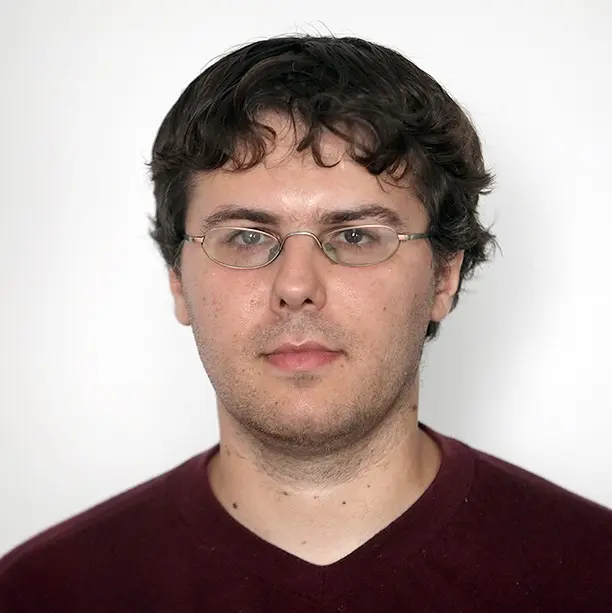According to the Security Service of Ukraine (SBU), this marks the first time Ukrainian authorities have exposed a Hungarian military intelligence network conducting activities harmful to Ukraine.
Delegations from 35 countries and the Council of Europe gathered in Lviv as EU officials prepare to approve both new defense aid and steps toward establishing a tribunal for Russian leadership.
The ruling marks a significant victory for RFE/RL amid growing concerns about U.S. funding cuts to independent media countering Russian disinformation.
U.S. Cardinal Robert Prevost was elected the new pope and leader of the Roman Catholic Church on Thursday, taking the name Pope Leo XIV, a senior cardinal announced on May 8 to crowds gathered in St. Peter’s Square, according to Vatican News.
George Simion, leader of Romania's far-right AUR party, who won the first round of the presidential election with nearly 40% of the vote, reiterated that if elected, he would oppose any further assistance to Ukraine and shift Romania’s focus inward.
Russian President Vladimir Putin and Chinese President Xi Jinping hailed their countries' relationship on May 8, vowing to increase cooperation in all areas, including military ties.
"There is Turkey, which maintains channels of communication. And then, above all, there is the People's Republic of China, which, more than anyone else, has the means to make (Russian President Vladimir) Putin come to the negotiating table and soften his demands," Polish Foreign Minister Radoslaw Sikorski said on May 8.
The United States will be ready to "walk away" from the negotiating table if it does not see Russia making progress in negotiation to end the war, U.S. Vice President JD Vance told Fox News on May 8.
Slovak Prime Minister Robert Fico arrived in Moscow on May 9 to celebrate Victory Day, commemorating the 80th anniversary of the defeat of Nazi Germany in World War II.
US President Donald Trump on May 8 called for a "30-day unconditional ceasefire" between Ukraine and Russia. Writing on Truth Social, Trump expressed his hope for "an acceptable ceasefire," with both countries "held accountable for respecting the sanctity of... direct negotiations."
President Volodymyr Zelensky had a "constructive" phone call with United States President Donald Trump on May 8, discussing the war, continued pressure on Russia, and a potential ceasefire.
The survey, conducted between April 24 and May 4, shows that 56.9% of respondents would not be willing to compromise on either territorial integrity or Ukraine’s pro-Western direction in any potential talks with Moscow.
Watchdogs: Parliament moves to destroy key pillar of judicial reform
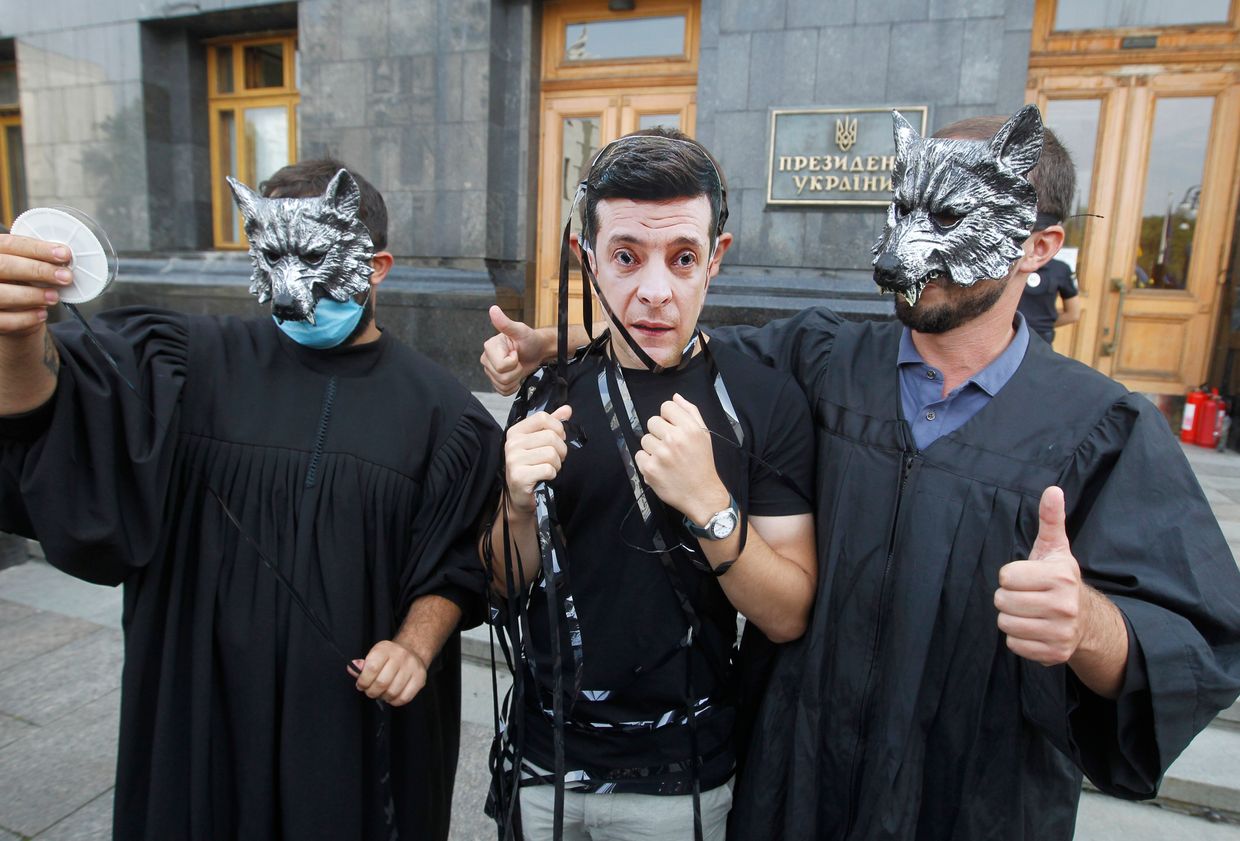
The Ukrainian parliament on Nov. 21 approved the first reading of a bill that effectively destroys a key pillar of judicial reform, the Public Integrity Council, according to civic watchdogs.
The Public Integrity Council, an independent civil society watchdog, assesses the integrity of judges and plays a key role in judicial reform.
The bill seeks to subordinate the Public Integrity Council to the High Qualification Commission, a judicial governing body. It would also make it effectively impossible for the council to assess judges’ integrity, according to independent civic watchdogs.
“Today the lawmakers approved the first reading of a bill that effectively destroys public control over the selection and assessment of judges in its current form,” Ukrainian judicial watchdog Dejure said in a statement.
Mykhailo Zhernakov, head of Dejure, said that "if this bill is further supported in this form, we can forget about the fulfillment of the EuroMaidan demand for cleansing the judiciary" – a reference to the pro-Western EuroMaidan Revolution in 2013-2014. The bill was approved on the 10th anniversary of the start of the revolution.
Dejure also said that the bill would damage Ukraine's bid to join the European Union, one of whose main demands is judicial reform.
Vitaly Tytych, a former head of the Public Integrity Council, agreed that the bill was a death knell for the council.
To become law, the bill must be approved by the parliament in the second reading and signed by the president. Dejure called for amending the bill during the second reading.
Denys Maslov, head of the parliament's legal policy committee, denied the accusations of passing a harmful bill but said it will be improved.
“(The accusations) don’t reflect the meaning of the bill,” he told the Kyiv Independent. “The bill was approved in the first reading and, as I have said publicly, it will undergo further revisions.”
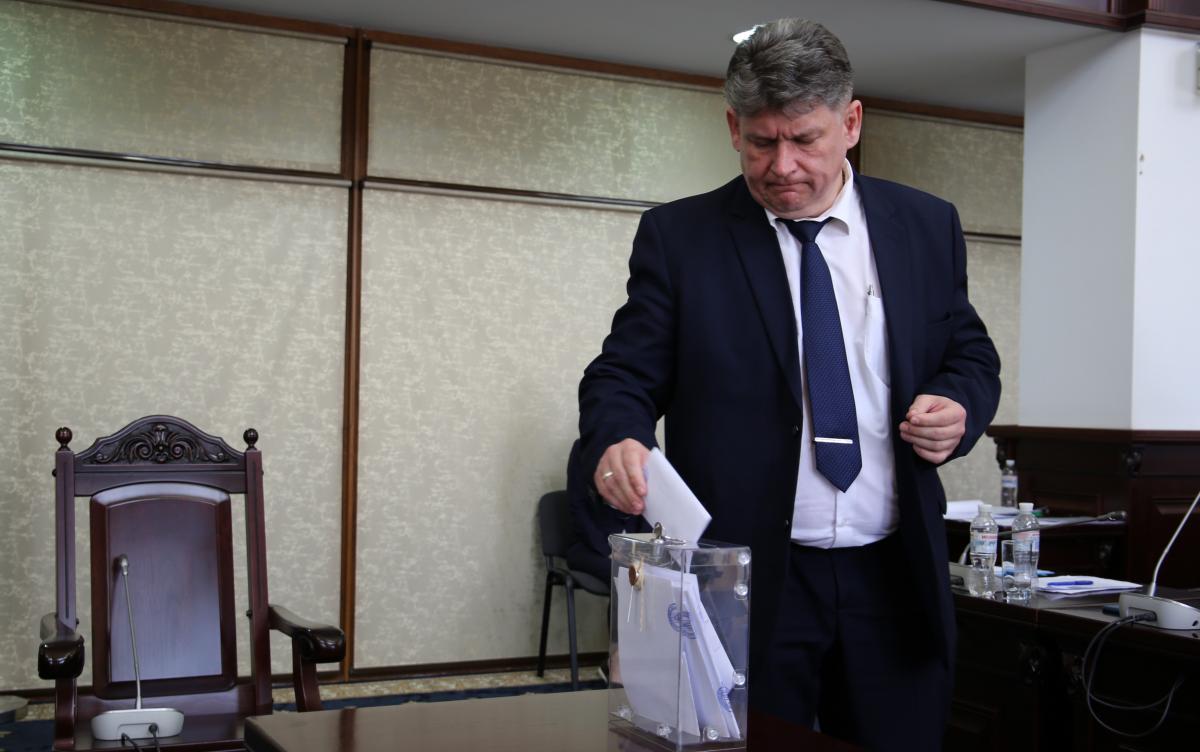
Problematic bill
Under the bill, the High Qualification Commission would be able to suspend the authority of Public Integrity Council members, thus eliminating its independence.
As a result, the High Qualification Commission will control the Public Integrity Council by suspending any council members that the commission does not like, Dejure said.
The bill also seeks to ban the Public Integrity Council from making “value judgments” in its opinions.
“The assessment of ethic categories like integrity is impossible without value judgments,” Dejure said.
Under the bill, Public Integrity Council members would also be banned from issuing public assessments of judges, which makes it impossible for the council to communicate the results of its work with society.
The bill also envisages selecting dozens of judges from candidates nominated by the previous High Qualification Commission, which was dissolved in 2019 for its failure to carry out judicial reform. The current High Qualification Commission was appointed in June.
Dejure argued that this poses a big risk because the previous High Qualification Commission had greenlighted numerous corrupt and tainted judges. Less than 1 percent of judges vetted by the previous commission were fired.
The justification for the clause on appointing new judges was that there is a shortage of judges in Ukraine. Tytych, a former head of the Public Integrity Council, rejected this justification.
"The High Qualification Commission has artificially created this shortage and used it as a tool of blackmail," he told the Kyiv Independent. "But it's not the quantity but the quality of judges that matters. Nobody needs courts with corrupt judges."
Under the bill, aides to judges would also have a priority in contests for judicial jobs compared with scholars and lawyers. Dejure believes that this is an obstacle to the appointment of outsiders and the cleansing of the judiciary.
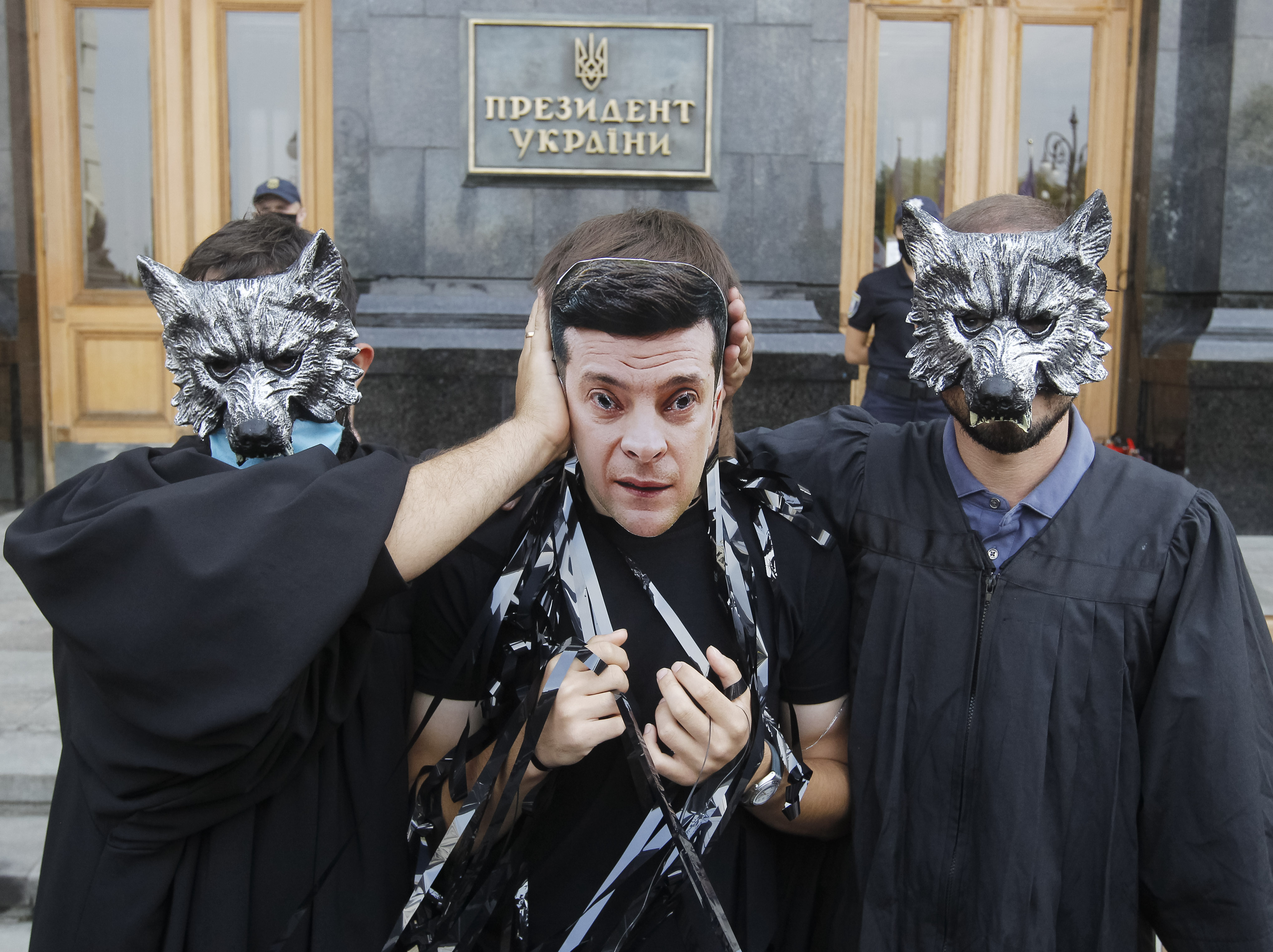
What's the Public Integrity Council?
The Public Integrity Council, set up in 2016, is selected out of representatives of NGOs and civil society watchdogs.
The council participates in the qualification assessment, or vetting, of judges. It issues opinions on whether a specific judge complies with integrity and ethics standards.
The High Qualification Commission may reject or accept such opinions.
The Public Integrity Council has played a key role in judicial reform by vetoing numerous tainted judges who do not meet ethics and integrity standards.
However, the High Qualification Commission has overridden most of the Public Integrity Council’s vetoes on tainted judges without explaining the reasons.
Members of the Public Integrity Council and independent judicial watchdogs argue that the High Qualification Commission has effectively destroyed the judicial reform by rejecting the council’s work.
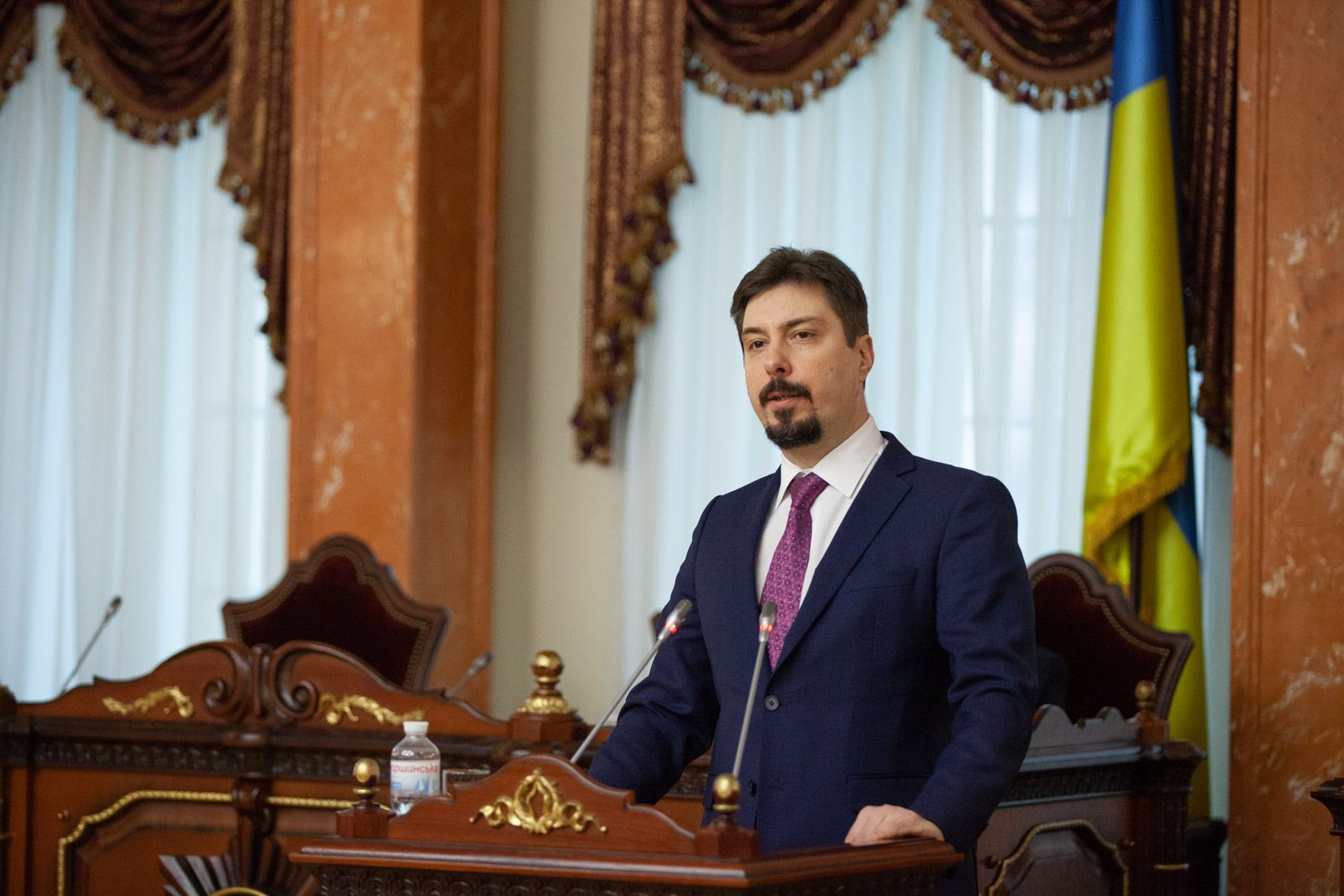
Most Popular

After Russia's deadly attack on Kyiv, Vance reposts denunciation of Zelensky

Ukraine, Europe's ceasefire proposal includes US security guarantees, no recognition of Crimea, Reuters reports
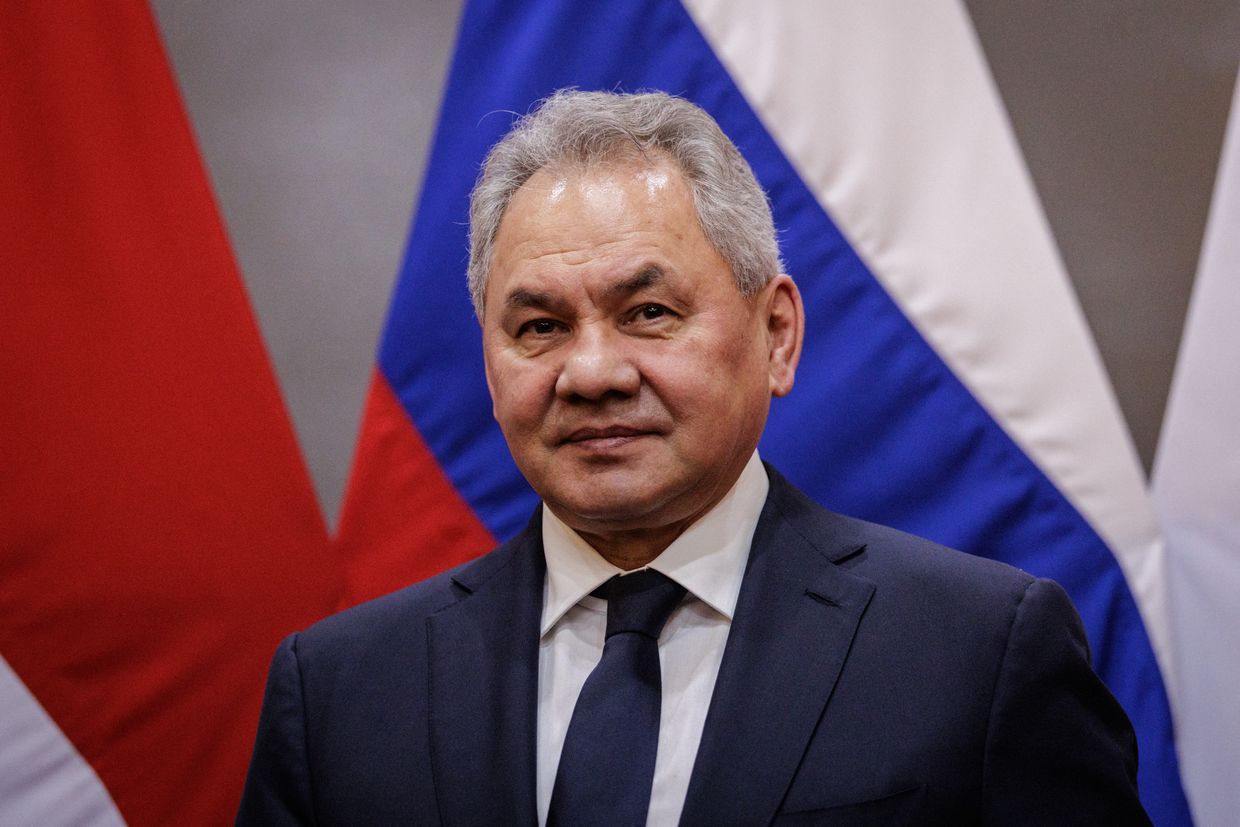
Shoigu threatens Europe with nuclear weapons if Russia is faced with 'unfriendly actions'

Journalist Roshchyna's body missing organs after Russian captivity, investigation says

Ukrainian sea drone downs Russian fighter jet in 'world-first' strike, intelligence says
Editors' Picks

How medics of Ukraine’s 3rd Assault Brigade deal with horrors of drone warfare

As Russia trains abducted children for war, Ukraine fights uphill battle to bring them home

'I just hate the Russians' — Kyiv district recovers from drone strike as ceasefire remains elusive



